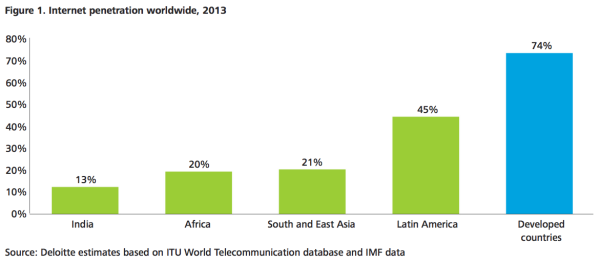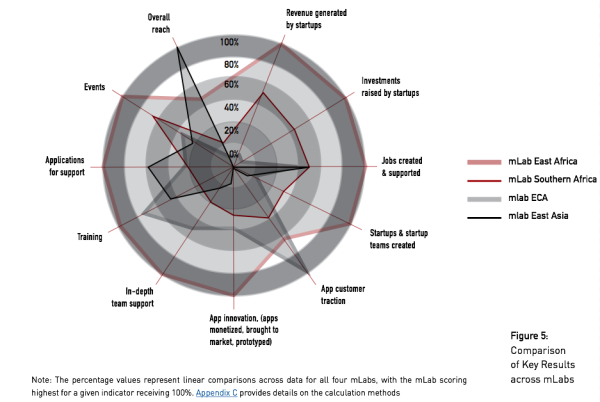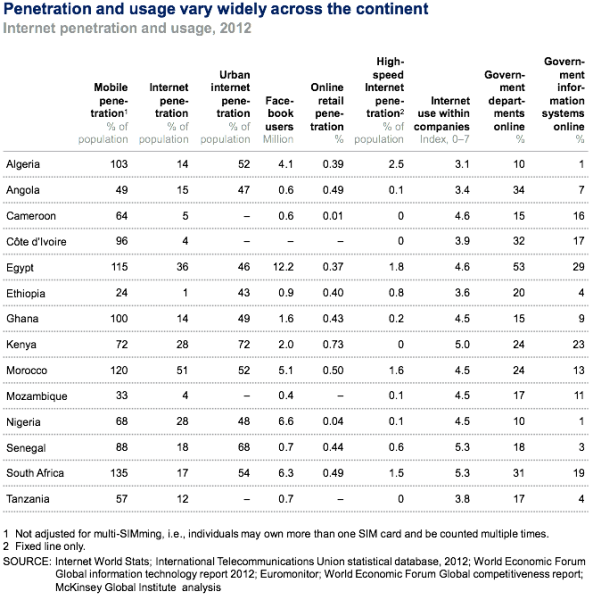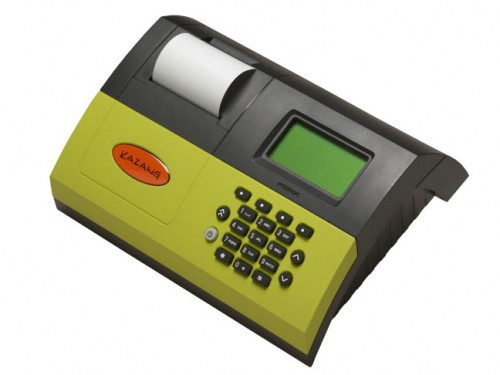I keep meaning to write blog posts on each of these reports on tech, most of them on Africa, but can’t seem to get it done. Instead, I’ll just post a link to each, a visual, and why I think it’s worth reading.
1. The Akamai “State of the Internet” Q3 2013 report
[Akamai Report – PDF Download]
Has good information on overall usage globally, and trends. In Africa, even though they have a node in Kenya, all we’re seeing is stats on South Africa, Egypt and Morocco. However, there is a really fascinating chart by Ericsson in it on wireless usage.
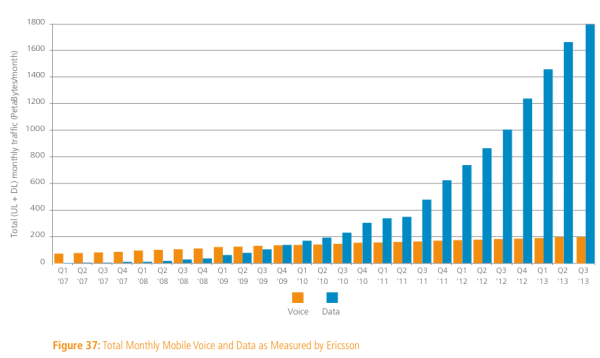
Mobile data vs voice growth globally – 2013
2. GSMA’s “Digital Entrepreneurship in Kenya” report 2014
[GSMA – Entrepreneurship in Kenya report 2014 – PDF Download]
The GSMA puts together some fantastic reports, due to the amount of data at their fingertips due to their association’s membership. Alongside the iHub Research team, they’ve done a deep dive into the tech entrepreneurship side of Kenya, and you can see the results here.
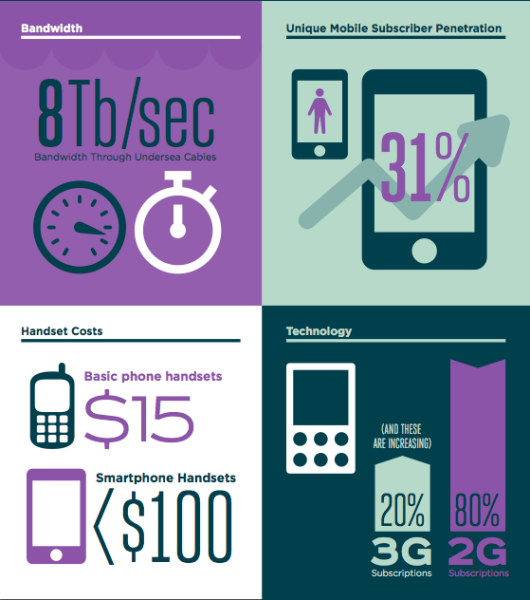
3. Deloitte’s “Value of connectivity” report 2014
[Deloitte’s – Extending Internet Connectivity report 2014 – PDF Download]
The Deloitte folks do a study and argue that an increase in internet penetration could have a large impact on an emerging market country’s GDP.
“Deloitte estimates that the resulting economic activity could generate $2.2 trillion in additional GDP, a 72% increase in the GDP growth rate, and more than 140 million new jobs.”
4. infoDev’s “The Business Models of mLabs and mHubs” report 2014
[The Business Models of mLabs and mHubs 2014 – PDF Download]
I’ve had a front-row seat to infoDev’s work starting and supporting places like the m:lab in East Africa. After doing it for 3 years, here’s their indepth report on what’s working, not working, how much money has been spent and what the future might look like.
5. McKinsey’s “The Internet’s transformative potential in Africa” report 2013
[MGI Lions go digital_Full report_Nov 2013 – PDF Download]
Mostly useful due to the interest large corporates and banks put in McKinsey, this report makes that the greatest impact of the internet in Africa is likely to be concentrated in six sectors: financial services, education, health, retail, agriculture, and government. What they’ve done particularly well is gather a large range of numbers from diverse and various sources to make better sense of what’s going on.
